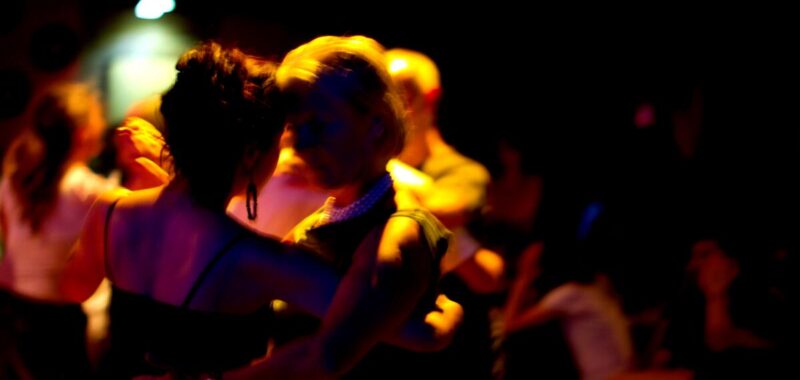In the run-up to the 2024 election, on cable news shows and at dinner tables, Americans debated a question that terrified various groups of us for various reasons. If Trump won, would he replace our democracy with fascism?
Given Republican anti-trans ad spending estimated at $215 million on network television alone (“She’s for they/them, he’s for you”), trans people had reason to fear that Trump would eviscerate the civil rights they’d earned over the last half-century. Sure enough, Trump immediately signed a slew of anti-trans executive orders collectively described by now-fired EEOC commissioner Jocelyn Samuels as a plan to “erase the existence of trans people.”
Milo Todd, a Lambda literary fellow and creative writing teacher, centers his first novel on an earlier erasure, largely hidden within a bigger story: Hitler’s attempt to eradicate the transgender people of 1930s Germany. When the Nazis took power, Berlin was an international gay hub, home to 100 queer bars, 25 queer journals and the Institute for Sexual Science, where the world’s first sex reassignment surgeries and hormone treatments were performed by gender activist Dr. Magnus Hirschfeld. Through the eyes and heart of the novel’s trans protagonist, Berthold “Bertie” Durchdenwald, we experience the news of Hitler’s takeover, which comes while he’s dancing with his girlfriend in a queer Berlin club.
The music cut out in the middle of a final, lingering note. “We interrupt to bring you important news,” the radio said. “President Hindenburg has just appointed Adolf Hitler as the new chancellor of Germany …”
“Don’t they know what this will do to Germany?” Sofie spat. All Bertie felt was cold.
Much as Trump immediately set about fulfilling his “Day 1” campaign promise to “stop the transgender lunacy” and “get transgender out of the military.” Hitler immediately labeled transgender people “sexual degenerates” and sent as many of them as his Brown Shirts could catch to the death camps. The institute was torched by a Nazi student mob, every book in its library burned in Opera Square. “The world had changed overnight,” Bertie observes. “The city was already draped in swastikas. Bright red flags hanging, flapping, lolling like dead tongues from every corner shop … Berlin was bleeding from the inside out.”
Heightening the contrast between the trans experience pre- and post-Hitler, Todd uses chapters alternating between Bertie’s beautiful Berlin life and his eked-out 1940s existence on the farm where he and Sofie hid under aliases throughout the war. Against this tragic setting, the elegance of Todd’s prose plants wonder in the reader’s mind. “The asparagus sprang up every spring without fail, an old friend, a capsule of history from when life kept growing, birthed from a better time.”
Soon after word of the war’s end reaches Bertie and Sofie, Bertie discovers an emaciated young man unconscious in the asparagus patch “in the dirtied stripes of a camp prisoner.” Noting the black triangle sewed to the man’s uniform, the Nazis’ label for trans prisoners, Bertie realizes the man must have escaped from nearby Dachau. While feeding and bathing the dazed stranger, Bertie takes a chance. “I’m a transvestite,” he says.
“Me, too,” says Karl.
“Why were you still in those clothes?” Bertie asked. “Didn’t the Allies liberate the camps weeks ago?”
“I fled when the Allies came.”
“Is it true? They’re setting everyone but us free?”
“The only difference I’ve seen between [the Allies and the Nazis] is their style of murder,” Karl answers.
Devastated to learn that the Allies, too, were treating trans people as subhuman, Bertie and Sofie stop waiting to be liberated and start planning their own liberation. Their preparations to emigrate to America include training the innocent Karl to avoid recognition.
“Perhaps when you’re rested,” Bertie said, “I can teach you how to transvert.”
“I am not a man exactly like that.”
“Or you could wear some of my things,” Sofie added gently.
Here, Todd has his youngest character summarize the painful central paradox of trans life — in Nazi Germany nearly a century ago, and possibly in tomorrow’s America.
“So we have to be who we’re not in order to be who we are,” Karl says.
As their need to flee grows more urgent — this time, from the Allied soldiers who are arresting queer people while freeing the rest of the country — Bertie must destroy the evidence of their assumed identities. He lights a bonfire and burns the very thing that most disaster survivors grab on their way out the door: the photo albums commemorating the once-carefree life he lived when he could be who he truly was.
“Everything had burned, ever since that night at the Institut,” Bertie reflects as the flames lick at images of his happier self. “First the twenty thousand books and then the countless people and then the proof that any of it had ever happened at all. It seemed like every last one of the normally sexed was in on it. It hurt his heart.”
As their escape ship pulls into New York harbor, Bertie ponders the permanence of his pain. “A great sadness fell upon him. Deutschland was behind him forever. He had loved his country. But what he loved was what it used to be, what had been lost. The things it could have been … Pride in a country was what it could do for its people, not what it could take away. Yet here they were. And he would need to get used to it.”
Exhaustively researched, gorgeously crafted and presciently timed, “The Lilac People” exhumes a buried history that could leave us mourning our lost democracy if we don’t learn from, and act on, its tragic lessons.
Maran, author of “The New Old Me” and other books, lives in a Silver Lake bungalow that’s even older than she is.

